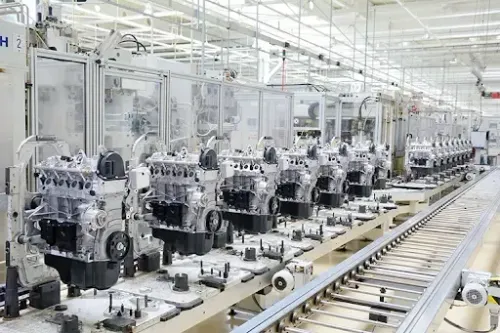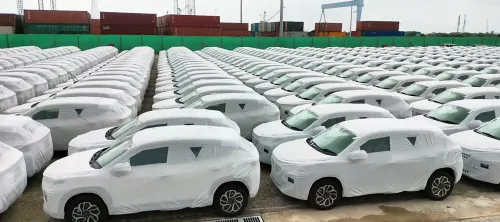Indian Companies Set to Lead Global Technology Adoption: WEF Report

New Delhi, Jan 9 (NationPress) Indian businesses are aiming to surpass global benchmarks in the adoption of pivotal technologies, with 35 percent forecasting that semiconductors and computing advancements will significantly alter their operational landscape, while 21 percent believe that quantum and encryption innovations will also have a transformative effect, as per the 'Future of Jobs Report 2025' released by the World Economic Forum (WEF).
The report, made public prior to the WEF's annual gathering in Davos scheduled from January 20-25, indicates that 35 percent of Indian employers anticipate that the integration of semiconductors and computing technologies (in contrast to 20 percent globally) will revolutionize their business operations. Additionally, 21 percent of employers are optimistic about the impact of quantum and encryption technologies (compared to 12 percent globally) on their operations.
According to the report, "The anticipated fastest-growing job roles in the country, such as big data specialists, AI and machine learning experts, and security management professionals, are in line with global job market trends."
Firms in India are also projected to leverage a diverse talent pool, with 67 percent of employers expressing this intention (versus 47 percent on a global scale) and are inclined towards skills-based recruitment by eliminating degree prerequisites (with 30 percent of employers, compared to 19 percent globally).
The report further mentions that the global demand for AI competencies has surged, with India and the US leading in enrollment figures. However, the underlying factors driving this demand vary: in the US, it is mainly fueled by individual users, while in India, corporate sponsorship significantly enhances the uptake of GenAI training.
Moreover, the report points out that increased digital connectivity, geopolitical conflicts, and initiatives aimed at climate change mitigation are pivotal trends expected to influence the job landscape in India by 2030.
This comprehensive report consolidates insights from over 1,000 companies employing more than 14 million workers globally, aiming to forecast the emergence and decline of job roles, shifts in skill requirements, and evolving workforce practices in response to the changing labor market.
It also emphasizes that countries experiencing a demographic advantage, such as India and nations in Sub-Saharan Africa, are projected to provide nearly two-thirds of new entrants into the workforce in the coming years. This is a direct outcome of demographic changes stemming from an aging population in affluent nations and a burgeoning working-age demographic in lower-income countries, which currently consists of 49 percent from lower-income regions and 51 percent from higher-income areas.
By 2050, this distribution is anticipated to shift, with lower-income countries expected to represent 59 percent of the global working-age population, according to the report.
sps/na










